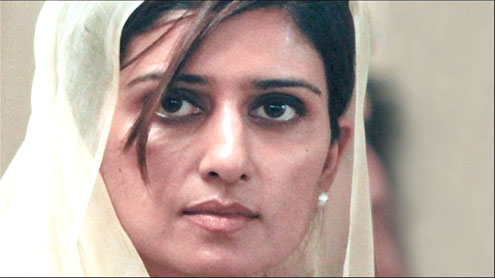 ISLAMABAD/MULTAN: Pakistan reasserted its firm resolve and commitment to cooperation with Iran, particularly in the energy sector, as the US renewed its opposition for the multibillion dollar Iran-Pakistan (I-P) gas pipeline project yet again — this time more subtly through its consulate general in Lahore.
ISLAMABAD/MULTAN: Pakistan reasserted its firm resolve and commitment to cooperation with Iran, particularly in the energy sector, as the US renewed its opposition for the multibillion dollar Iran-Pakistan (I-P) gas pipeline project yet again — this time more subtly through its consulate general in Lahore.
“We are a sovereign country and we will do whatever is in the interest of Pakistan,” Prime Minister Yousaf Raza Gilani said while responding to a question on “Prime Minister Online,” a programme hosted by Pakistan Television and Waqt News.The prime minister said that while Pakistan wants to expand ties with the US on the basis of mutual interest and respect, the US should refrain from interfering in Pakistan’s internal affairs.
Earlier, a more direct Foreign Minister Hina Rabbani Khar said projects with Iran were in the national interest of Pakistan and will be completed irrespective of any external pressures.“All of these projects are in Pakistan’s national interest and will be pursued and completed irrespective of any extraneous considerations,” the foreign minister said at a press conference at the Foreign Office.“As far as our bilateral relations and co-operation is concerned, we do not make it contingent on views and policies of any third country.
“We cannot afford to be selective. [However], we want to add the element of credibility with the US,” said Khar.Her reaction came just a day after US Secretary of State Hillary Clinton told a congressional subcommittee that Pakistan risked facing economic sanctions if it continued its plans for the pipeline.Clinton said that embarking on the construction of an I-P pipeline is in violation of the Iran Sanctions Act. However, Khar rejected the assertion, saying: “All friends of Pakistan must understand our energy needs”.
She did not, however, explain how Pakistan would respond if the US did penalise Islamabad in case it went ahead with the project.“We’ll cross the bridge when it comes,” Khar said.‘Focus on domestic sources’Earlier in the day, while addressing industrialists and the business community in Multan Chamber of Commerce, Nina Maria, the US consulate general in Lahore said: “Pakistan should better find solutions domestically for their energy crisis than going for the Iran-Pakistan gas pipeline.”
Emphasising on alternative sources of energy, Maria said that the US government has donated $15 million for thermal power stations which will be constructed in Muzaffargarh. The project would generate about 1,400 megawatts of electricity and will be completed in November 2012.The US consulate general was of the view that the pipeline was three years away from being completed and it wasn’t something that Pakistan had to move on immediately.
“You have other domestic programmes which can be easily upgraded. You can work on them with co-ordination from us before considering the I-P gas pipeline to alleviate the country’s energy woes.“Ultimately Pakistan will have to solve its own problems and find its own answers,” said Maria.Discussing Pakistan’s relations with its neighbours, she said: “Pakistan needs to decide its policy and its relations with its neighbouring countries and whether it wants them to be friends or foes. We are ready to give assistance.“The US and Pakistan’s civil-military leaderships are in constant contact with each other on the policy matters.”
Meanwhile, the foreign minister said that Cabinet’s decision to liberalise trade with India would be “mutually beneficial” for both the countries.However, in an attempt to pacify certain groups and rightwing parties on the issue of granting most favoured nation (MFN) status to India, Khar insisted that the decision must not be construed as “dilution” of Pakistan’s principled stance on the longstanding issue of Kashmir.
She argued that normalising trade and economic relations with India would hopefully pave way for conditions leading to the resolution of all contentious disputes between the two countries.“India is exceptionally keen for result-oriented talks with Pakistan,” she stated.Meanwhile, regarding the Afghan reconciliation process, Khar maintained that Pakistan would support an Afghan-led, Afghan-owned and Afghan-driven reconciliation process.She said Islamabad has no desire to interfere in the internal matters of Afghanistan. “All countries must adhere to this principle.” – Thetribune












